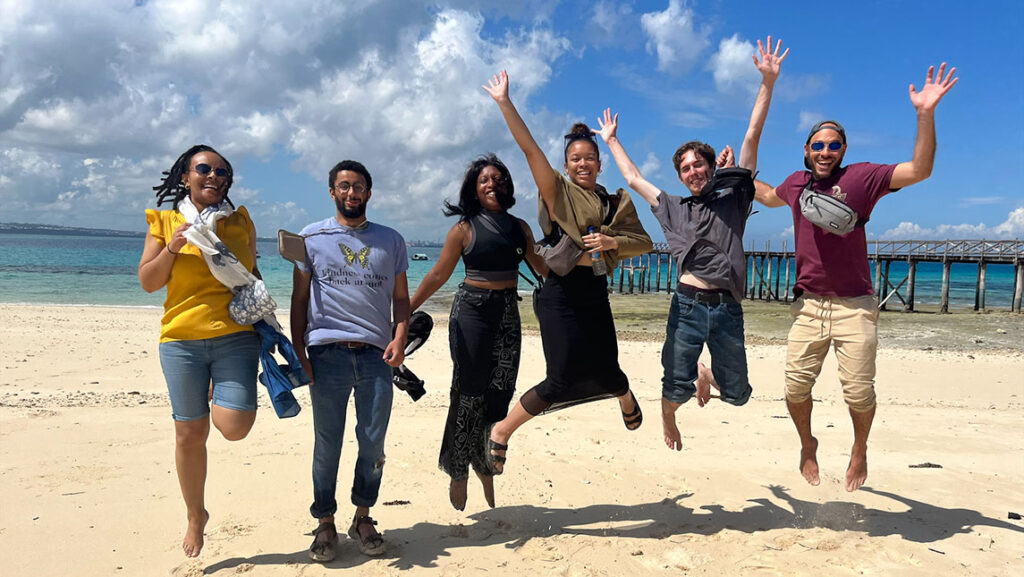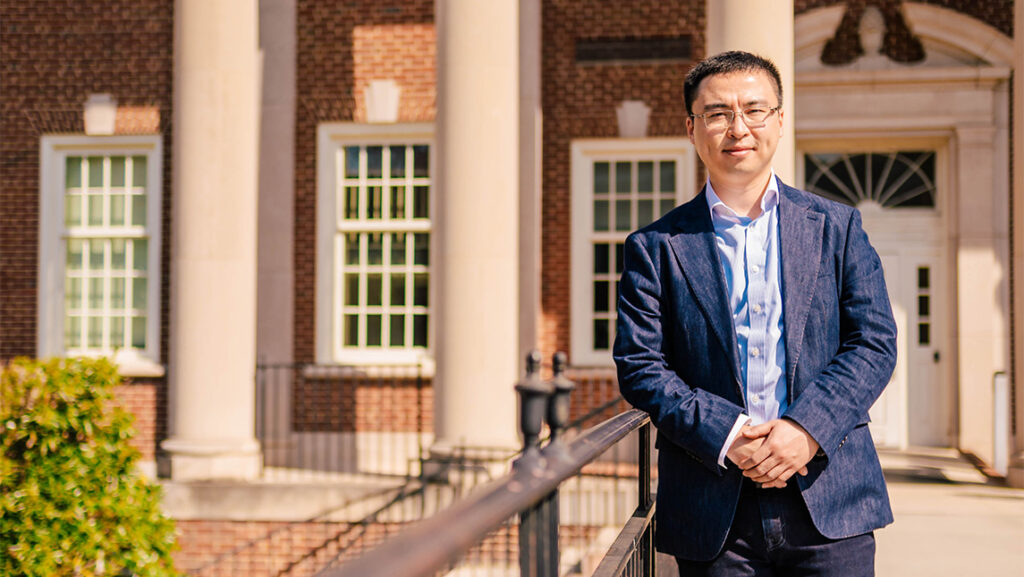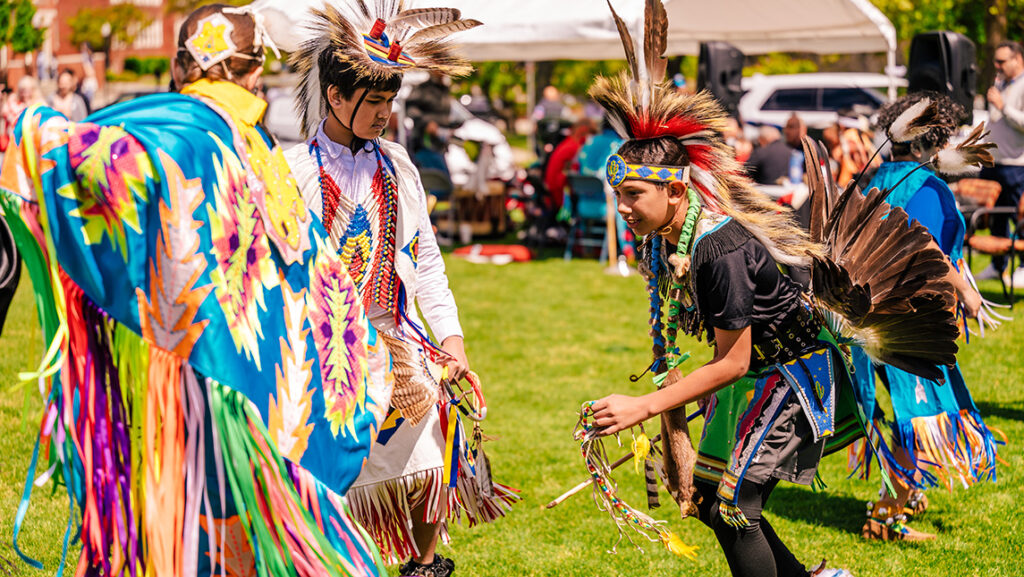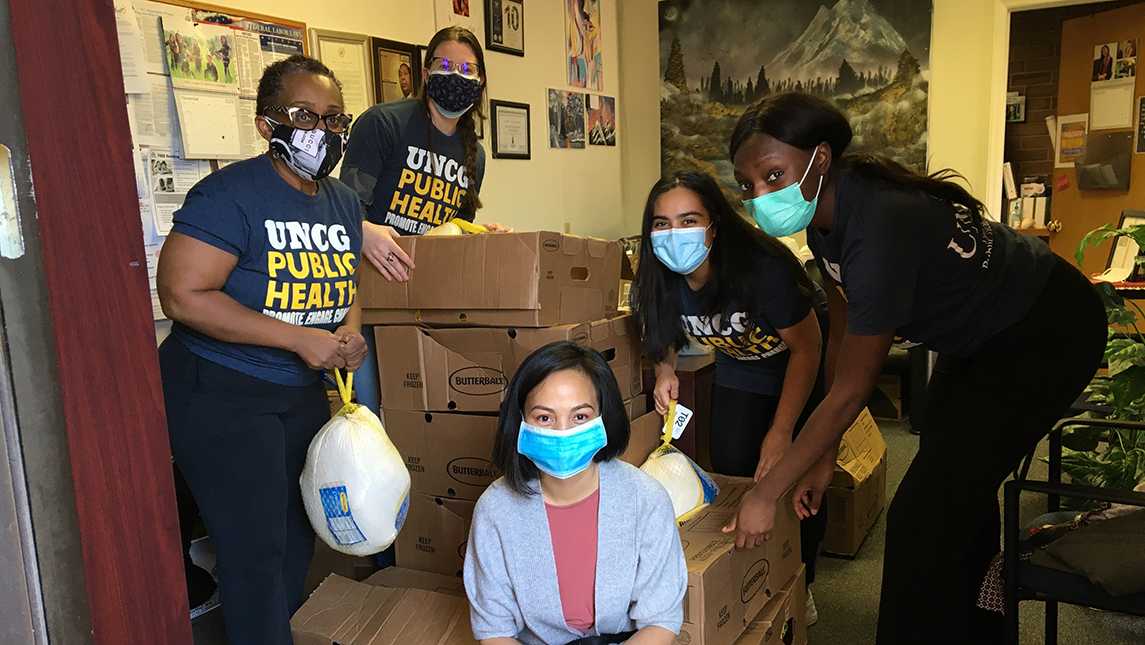
North Carolina and the Piedmont Triad region have a history of successful refugee resettlement dating back to the early 1980s, making it a natural laboratory for examining the health and integration of ethnically and linguistically diverse newcomer communities.
But the COVID-19 pandemic has revealed deep-seated inequities in health care for communities of color and amplified social and economic factors that contribute to poor health outcomes.
Minority, refugee, and immigrant populations have experienced a lack of communication, information, resources, and support.
Dr. Sharon Morrison, professor in the Dept. of Public Health Education, has been working with these populations for over 15 years, and when the pandemic hit, she swiftly changed her coursework and research so she and her students could focus on outreach for African American, Bhutanese, Montagnard, and African immigrant and refugee communities.
“We in higher education have the tools and resources to give back, and we have a duty to leverage those resources for our broader community,” said Morrison.
Throughout the pandemic, a lot of information was rapidly shared, but it took more time for these vital messages to reach minority and refugee communities because of language and technology barriers.
In the Spring 2020 semester, Morrison’s global health students created and managed a Twitter account to track COVID-19 updates. In summer, her master’s level students organized outreach with the Montagnard and Bhutanese refugee populations and began participating in Zoom calls with community leaders and elders for pandemic updates and guidance.
Beginning in the Fall of 2020, students in Morrison’s public health disease class began creating infographics to share this information, guidance, and these updates in a fast and digestible format. Messages on mask wearing, handwashing, social distancing, gathering limits, and testing were translated into different languages by students so that the information was readable for families and children.
These infographics were laminated and added to distribution boxes that Morrison and her students delivered to minority and refugee groups, including packaged food, fresh groceries, and PPE. On average, Morrison and her students were able to distribute these boxes to more than 60 families, thanks to a grant from Black Child Development, Inc.
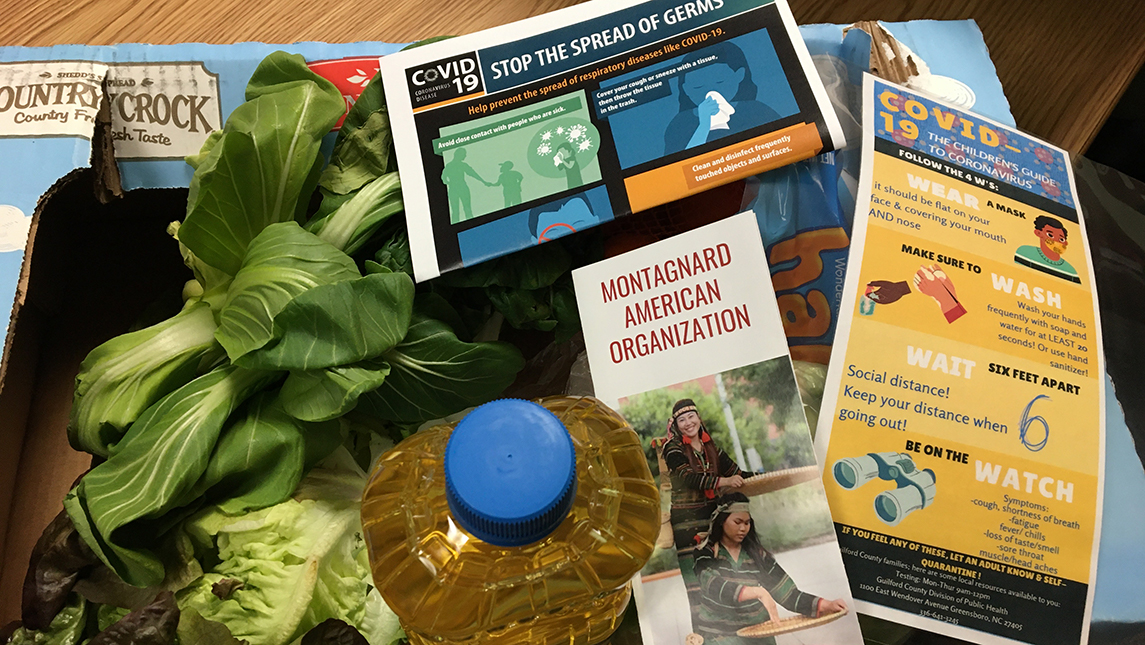
As the world returns to a “new normal,” Morrison and her students are deciding how they will focus their efforts on supporting these minority and refugee groups in a post-pandemic world, ensuring they have access to the resources they need to stay well.
“I couldn’t have done all of this without the collaboration of our student trainees. The students were not just onlookers. They stepped up and asked, ‘What can we do?’”
Morrison describes this outreach as an incredible learning experience for her public health education students, many of whom were in need of internships that were harder to come by during the pandemic. They were able to leverage these skills and this training to find internship opportunities.
One of these students was Caroline Wells, a second-year graduate student who after working with Dr. Morrison on community outreach with Greensboro’s refugee and immigrant populations, was connected to Mustard Seed Community Health, a charitable clinic in East Greensboro.
As a public health intern, Wells worked with the health outreach team and community health workers along with other graduate-level public health and social work interns from UNCG and N.C. A&T to support the medical clinic and the community health center. Wells helped provide transportation assistance and food delivery to underserved populations, and most prominently, helped facilitate the in-person and mobile vaccine clinics offered by the center to provide vaccinations to marginalized populations in the Greensboro area.
“I’ve witnessed how important human capital is, especially in a pandemic when community and social interaction is so limited,” said Wells. “It’s amazing to see how willing people are to help others within the community, especially in a time like this.”
This internship has helped Wells define her career path as well. After she graduates from PA school at Emory University, she hopes to come back to Greensboro and continue to address health inequities in the community by serving the same populations she is serving now in her internship.
Morrison describes public health education students studying during a pandemic as historical.
“These students have had a unique experience in that they were able to put concepts they learned in class into practice and make a real impact in real-time.”
Story by Alexandra McQueen, University Communications
Photography courtesy of Dr. Sharon Morrison
